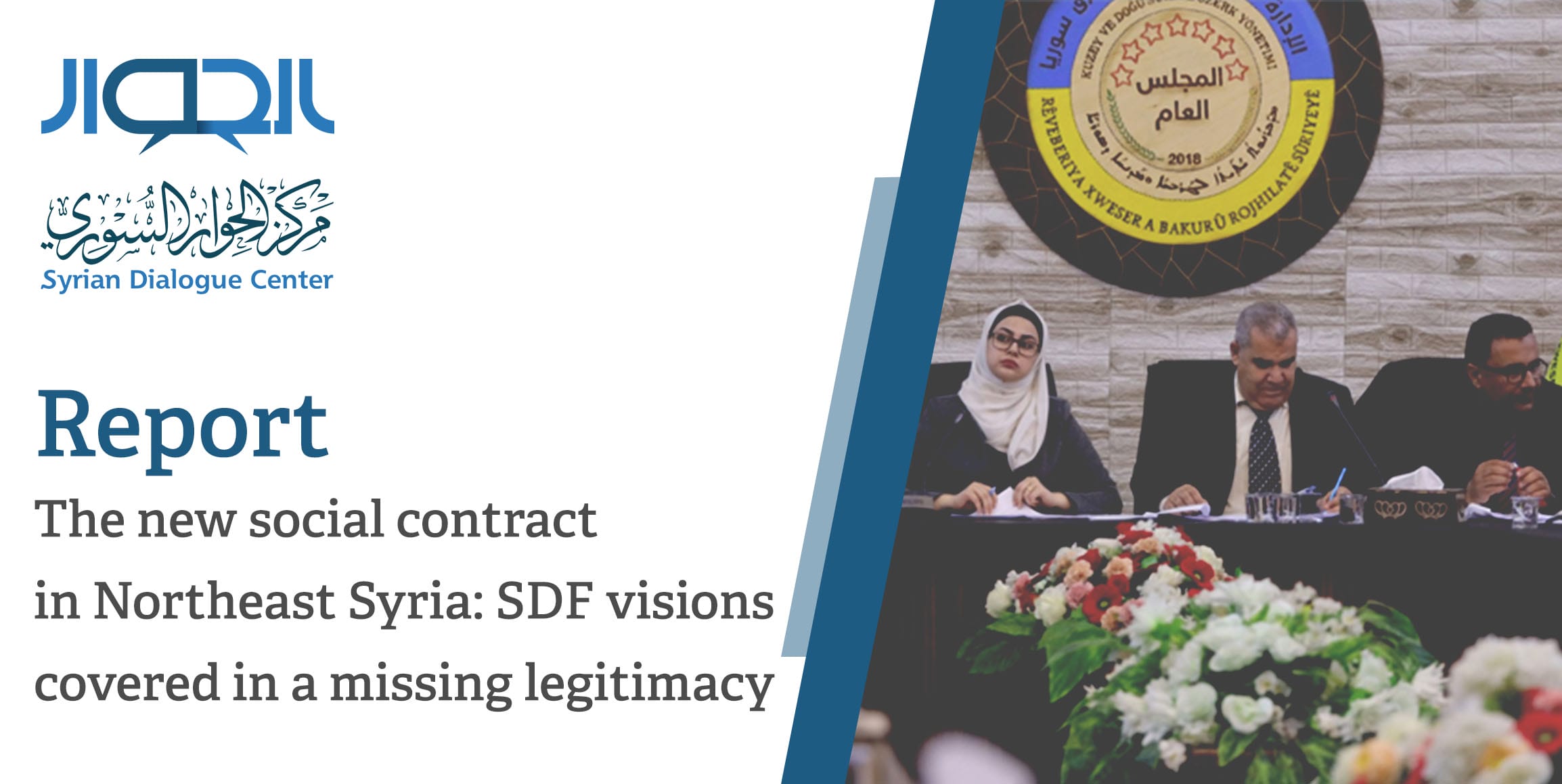
The new social contract in Northeast Syria: SDF visions covered in a missing legitimacy
Executive Summary:
In light of the discussions following the release of the General Assembly affiliated with the Syrian Democratic Council’s (SDC) “Social Contract of the Autonomous Administration in North and East Syria,” this analytical report sheds light on the philosophy behind this new document, its legal adaptation, and whether it genuinely qualifies as a social contract or not.
The report clarifies in its first section the focus of the “Social Contract for North and East Syria” on presenting “progressive” contents by declaring adherence to international covenants. It adopts key issues such as women’s and children’s rights, the environment, and minorities in a manner suggesting an attempt by the SDC to market its document externally, especially to the states that support them, presenting it as aligned with international agreements and covenants. However, the reality confirms that the SDC violates these slogans, principles, and disregards them altogether. Additionally, the ideological display of the ideology of the PKK and its concepts were among the motivations behind formulating certain texts in this document. This is evident in the incorporation of concepts attributed to its founder, Abdullah Ocalan, such as the concepts of democratic nation, democratic confederalism, the view of societal organization, and the concept of “jineology” regarding women.
The second section of the report discusses the legal and factual adaptation of the “Social Contract for North and East Syria.” It indicates that the document lacks legitimacy of the entity capable of issuing such a document. Moreover, it lacks procedural pathways due to the absence of societal participation in its formulation, sidelining the views of people from various components, including the Kurdish component. It also operates in a context far from the construction of societal agreements amid the presence of foreign powers and instability. Furthermore, the contract is limited to a specific geographical area, implying the potential for further societal divisions. Therefore, under no circumstances can this document be described as a “social contract.” In reality, it is closer, objectively, to a partisan vision specific to the SDF for managing the region, wrapped in general texts and humanitarian slogans facilitating the document’s marketing as a “social contract” establishing future legitimacy for division and separation. Formally, it is a document imposed by the power of the de facto authority represented by the SDF.
Read the full report (Arabic)






